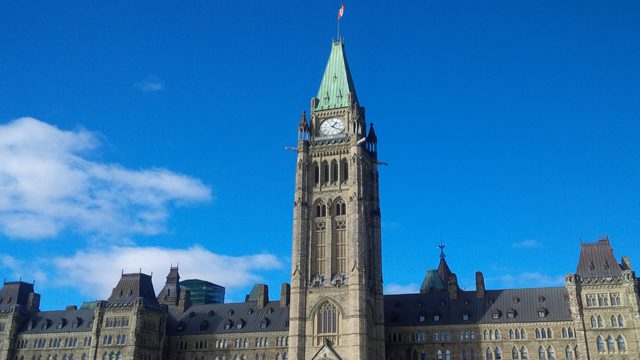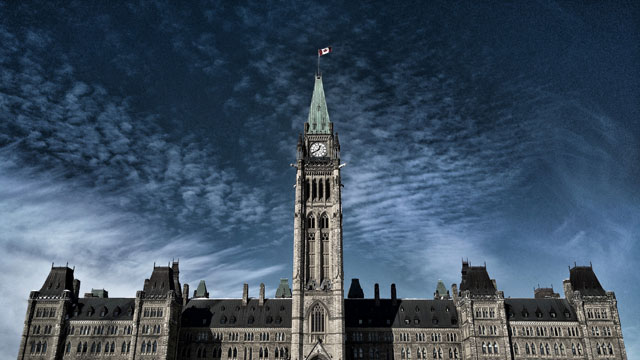
APTN News
Manitoba’s minister of families says she has no idea what to expect from the federal government’s roll-out of a new law that will reform the First Nation, Métis and Inuit child welfare system.
“This is not the way to bring about reforms in such an important area as this that will have an impact on the most vulnerable people in our society, which is our children,” Heather Stefanson said. “This is unacceptable.”
Canada is only six weeks away from the largest ever reforms to theIndigenous child-welfare system and Ottawa admits that it will have nothing in place when the law is enacted on Jan. 1.
Stefanson said she shared her concerns with former Indigenous Services Minister Seamus O’Regan last month but never received a response.
On Wednesday O’Regan was moved to Natural Resources by Prime Minister Justin Trudeau.
Stefanson said she has sent another letter to newly appointed Indigenous Services Minister Marc Miller this week reasserting the province’s concerns.
A story published by APTN News on Tuesday reported that people who work in the field of First Nations child welfare say the federal government has yet to share how it will implement the massive changes contained in C-92.
Mi’kmaw lawyer Naiomi Metallic said despite the Trudeau government saying it did extensive consultation in developing the legislation, she is not aware of a transition plan with the federal government.
She said a manager in legal aid told her they didn’t know about the bill.
“No idea. None,” said Metallic, a professor at the Schulich School of Law at Dalhousie University.
Metallic said this is concerning because legal aid provides funding for many parents to fight child apprehensions in court, as it’s been proven most First Nations children are apprehended due to poverty-related concerns and not physical abuse.
“It doesn’t appear to be on the radar of other legal actors who really should have this on the radar. For example, judges. A lot of judges, I think, are not even aware. I think this lack of knowledge is across the board,” said Metallic.
Cindy Blackstock, the executive director of the First Nations Child and Family Caring Society and the main party fighting a federal government challenge of a Canadian Human Rights Tribunal ruling ordering Canada to pay thousands of dollars in compensation to First Nations children who have been in the system, says not having a plan is irresponsible.
“The fact that C-92 will come into force on New Year’s Day without any transition plan means children and families will face unnecessary uncertainty as child welfare workers, legal aid lawyers and the judiciary try to figure out how to apply C92 to cases,” Blackstock said in an emailed statement Friday.
“The federal government has not even taken the basic step of clarifying what courts will hear child welfare matters under C92 as of January 1. The Act also includes provisions to not remove for socio-economic conditions but there is no money to address poverty or any other provision in the Act,” she continued.
“Overall, the federal government’s failure to take measures to ensure that child welfare services for children and families were seamlessly would not be disrupted is irresponsible and counter to the Act’s objective of improving services.”
The federal government has said the legislation will reduce the number of Indigenous children in care by affirming the inherent rights of First Nation, Inuit and Metis communities.
Indigenous groups, which are not defined in the legislation, are to give notice of their intent to exercise jurisdiction or request a tripartite co-ordination agreement with the federal and provincial government. They would develop or implement existing laws related to child welfare and those would prevail over federal and provincial laws.
There is no funding attached to the legislation.
Rola Tfaili, a spokesperson for Indigenous Services Canada, said the department can’t provide specific information until the new year. Tfaili said the implementation will be co-developed with Indigenous partners and stakeholders.
Stefanson said she supports the overall objective of the legislation but said there’s no clear plans for how it will be implemented or funded.
In Manitoba, the stakes are high, she added. There are about 10,000 children in care in the province and about 90 per cent are Indigenous.
“We want to ensure these kids don’t fall through the cracks as a result of these changes that are being imposed by the federal government,” she said.
There are more than 60 First Nations in Manitoba. While many people live on reserves, a significant number live in urban centres.
There is also a large Metis population. Stefanson said the legislation needs to address situations where kids have connections to multiple communities.
She is concerned how it will affect data-sharing between agencies, such as the child-abuse registry, and ensure equity in care and work within the provincial court system.
Manitoba is currently doing its own child-welfare overhaul, and it will likely affect those plans, she said.
“This is arguably the biggest reform of child welfare in the history of our country and there’s been no dialogue.”
Stefanson said there are also questions about how it will affect the jurisdiction of the Manitoba Advocate for Children and Youth.
Advocate Daphne Penrose said there must be a clear plan on how to move from the current system to the new laws. She has not received any communication from the federal government.
“This is a system where children’s lives depend on this system protecting them in a number of areas, and supporting families to stay together,” she said, adding that people need to work together to make it a success.
“The federal government needs to provide communication and resources and funding and transitional frameworks in order for this to be done in a meaningful and good way for kids. Those commitments need to be in place.”
@aptnnews
With files from the Canadian Press.











